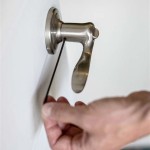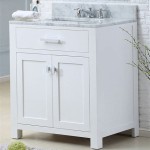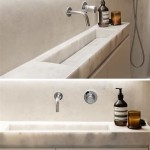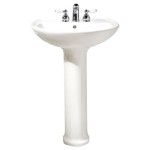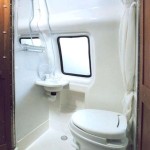How High Should Bathroom Sink Faucet Be?
Determining the optimal height for your bathroom sink faucet is crucial for ensuring both functionality and comfort. Several factors must be considered, including the height of the sink, the type of faucet, and personal preferences. In this article, we will explore the essential aspects of faucet height and provide guidelines to help you make an informed decision for your bathroom renovation or upgrade.
Factors to Consider
1. Sink Height: The height of the sink plays a significant role in determining the appropriate faucet height. Ideally, the faucet should be positioned so that the water stream falls at a comfortable distance from the sink surface. This prevents splashing and ensures easy access to the water.
2. Faucet Type: Different types of faucets have different heights and spout lengths. Waterfall faucets, for instance, typically have a higher arc than standard faucets, requiring a higher mounting position. Consider the specific faucet you plan to install when determining the optimal height.
3. Personal Preferences: Ultimately, the most comfortable height for your faucet is a matter of personal preference. Some people prefer a higher faucet for better handwashing clearance, while others prefer a lower faucet to minimize splashing. Consider your own height and reach when making this decision.
Guidelines for Faucet Height
Based on the factors discussed above, here are some general guidelines for determining the ideal faucet height for your bathroom sink:
- For sinks with a height of 30-32 inches, a faucet height of 4-6 inches above the sink surface is typically recommended.
- For sinks with a height of 34-36 inches, a faucet height of 6-8 inches above the sink surface is often suitable.
- For waterfall faucets, a height of 8-10 inches above the sink surface is often recommended to provide adequate clearance for the flowing water.
- For people with limited reach or mobility, a lower faucet height may be more accessible and comfortable.
Additional Considerations
In addition to the height, other considerations may influence your faucet placement:
1. Backsplash: Ensure that the faucet height does not interfere with the backsplash behind the sink. The water stream should clear the backsplash to prevent water damage.
2. Mirror Height: If your sink has a mirror above it, consider the faucet height in relation to the mirror. The faucet should not obstruct your view in the mirror when washing your hands or brushing your teeth.
3. Countertop Thickness: The thickness of the countertop can also affect the perceived height of the faucet. A thicker countertop may require a slightly higher faucet to achieve the desired water flow.
Conclusion
Determining the ideal height for your bathroom sink faucet is a crucial step in creating a comfortable and functional bathroom space. By considering the factors outlined in this article, including sink height, faucet type, and personal preferences, you can make an informed decision that will enhance your daily bathroom routine. Remember to consult with a qualified plumber if you have any questions or concerns regarding faucet installation.

Home Interior Design Tips Bathroom Dimensions Floor Plans Wall Mount Faucet

A Perfect Pairing Selecting Your Vessel Sink Faucet Native Trails

Height Of Wall Mounted Faucet With Vessel Sink

Pros And Cons Of Wall Mount Faucets Hawaii Interior Designer Sachi Lord

Bathroom Faucet Guide

Pros And Cons Of Wall Mount Faucets Hawaii Interior Designer Sachi Lord

Vessel Sinks And Wall Mount Faucets Vigo Blog Kitchen Bathroom Shower Ideas

Bathroom Faucet Guide

How To Choose A New Bathroom Sink Faucet Vevano

Faucet Height Above A Vessel Sink Homes Land
Related Posts
